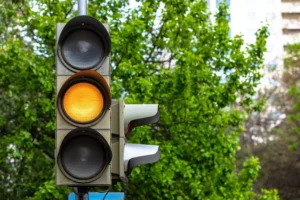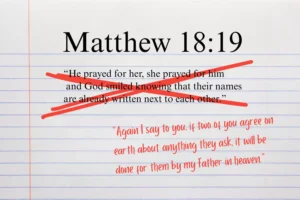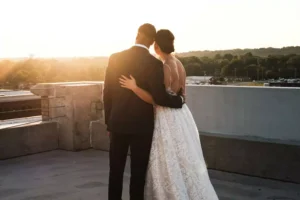Sixty-seven years ago the world seemed spinning towards chaos. But God’s work in the lives of two men — two enemies, to be more exact — is testament to His sovereignty and the fact that no matter how bad matters might seem, He is in control.
Story One:
The time was 7:49 a.m., Dec.7, 1941. Cmdr. Mitsuo Fuchida of the Japanese Imperial Navy was admiring the billowing white clouds and brilliant sunrise as he led a squadron of 360 Japanese fighters, bombers and torpedo planes over the Hawaiian island of Oahu. Just four days after his 39th birthday, Fuchida was in charge of a bold gamble by imperial Japan: knock out the U.S. Pacific Fleet at Pearl Harbor in one crushing blow, which would give Japan free rein to continue its conquests of Asia and the Pacific.
Seeing the fleet peacefully at anchor 3,000 meters below his plane, Fuchida smiled as he ordered, “All squadrons, plunge in to attack!” He then radioed back to the Japanese fleet 230 miles away: “Tora, tora, tora!” The attack had begun!
What followed was, in the words of President Franklin Roosevelt, “a day that shall live in infamy.” Of eight battleships in the harbor, five were destroyed. Fourteen others ships were sunk or damaged. More than 2,300 Americans lay dead or dying, many trapped within the hulls of their sinking ships. Fuchida later described the day as “the most thrilling exploit of my career.”
At that same time, Sgt. Jacob DeShazer of the U.S. Army Air Corps was on KP duty, peeling potatoes at his base in Oregon. Upon hearing the news over the radio, DeShazer hurled a potato against the wall, screaming, “The Japs are going to have to pay for this!”
The down payment for DeShazer was to volunteer to join a special squadron being formed by Col. Jimmy Doolittle, whose mission was to take the war directly to the Japanese in a daring bombing raid over Tokyo using B-25 bombers taking off from the U.S.S. Hornet.
In military terms, the Doolittle raid on April 18, 1942, was only a pinprick, but as a morale-booster for Americans, it was a stunning success. But DeShazer’s B-25 ran out of fuel before it could reach a safe area in China, and he and his crew were forced to bail out over Japanese-held territory. DeShazer would spend the next 40 months as a prisoner of Japan, 34 of them in solitary confinement, during which he was routinely tortured and his already burning hatred of the Japanese was fanned into an inferno. As fellow American prisoners were executed or died of starvation, disease or torture, DeShazer remained alive — if barely.
DeShazer’s solitary confinement gave him time to ponder the human condition. He wondered what could cause such hatred among fellow humans. Barely remembering Sunday school lessons from childhood, he asked his Japanese guards for a Bible. Two years after his capture he finally received one and eagerly read through its pages, virtually gulping down lessons on mercy, forgiveness and redemption. He later wrote:
I discovered that God had given me new spiritual eyes and that when I looked at the enemy officers and guards who had starved and beaten my companions and me so cruelly, I found my bitter hatred for them changed to loving pity. … I prayed for God to forgive my torturers, and I determined by the aid of Christ to do my best to acquaint these people with the message of salvation.
On Aug. 20, 1945, a smiling Japanese guard swung open DeShazer’s cell door and said, “War over. You go home now.”
DeShazer wrote a book called I Was a Prisoner of Japan and, after studying at Seattle Pacific College, returned to Japan, this time as a missionary to his former enemies.
Story Two:
Fuchida, for the Japanese the “hero of Pearl Harbor,” was part of the Japanese task force that was going to attack Midway Island six months after Pearl Harbor. But he came down with a case of appendicitis and was evacuated to the rear. During the massive air battle on June 4, 1942, Japan lost hundreds of planes and pilots and five ships, including all its aircraft carriers — a crippling blow. Later in the war, Fuchida was in Hiroshima the day before the first atomic bomb was dropped on that city, but he was called to an emergency meeting at navy headquarters in Tokyo on that day and survived the war unscathed — the only Japanese pilot to survive the war from beginning to end.
After the war he to return to a life of farming. But deeply shamed by Japan’s loss and still with the heart of a warrior, it was an unsatisfying life. Even though married, he had a mistress in Tokyo and made many excuses to his wife, Haruko, for why he had to travel there frequently.
One day in October 1948, while getting off the train in Tokyo, Fuchida saw an American handing out leaflets in Japanese. The title caught his eye: Watakushi Wa Nippon No Horyo Deshita (I Was a Prisoner of Japan). It grabbed his attention immediately, especially since it started out talking about Pearl Harbor. Fuchida was determined to learn more about this man, not out of any interest in Christianity, but because he wanted to know more about DeShazer. Even though they had been enemies, he admired the courage of the Doolittle Raiders.
But he was taken with DeShazer’s Christian testimony, too. A friend told him to get a Bible, but Fuchida could not find one in Japanese. But a few days later, on the same train platform, a Japanese man stood with boxes of books: “Get your Bible—food for you soul,” the man cried in Japanese. Struck by the coincidence and despite his Shinto heritage, he bought one for 40 yen, a pittance at the time. He was struck by Jesus’ words in Luke 23:34: “Father, forgive them, for they do not know what they are doing.”
Fuchida later wrote, “I was impressed that I was certainly one of those for whom Jesus had prayed. The many men I had killed had been slaughtered in the name of patriotism, for I did not understand the love of Christ.” He changed from a bitter ex-war hero to a man on a new mission. Fuchida went on to become an evangelist throughout Japan and Asia, and he and DeShazer eventually become close friends.
Fuchida died in 1976 at the age of 74. DeShazer died last March at age 95. Sixty-seven years ago, the two men were bitter enemies. Today they are eternal brothers, a testimony to the power of God’s grace and His sovereignty.









